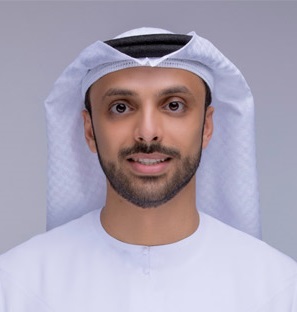In Short
- Campaign aims to raise awareness of the environmental impact of food waste and educate the community on best practices in responsible food consumption
- Centred around the ‘Share More, Waste Less’ motto and in the context of Mashreq’s ongoing ESG efforts, this initiative aligns with the UAE’s national sustainability and food security agenda
Dubai, UAE: Mashreq, one of the leading financial institutions in MENA, is partnering with the national food loss and waste initiative ne'ma - Arabic for ‘blessing’ – to galvanise support around reducing food waste and encourage other entities in the private and public sectors to collectively address food waste and improve responsible consumption.
In the MENA region, where food waste skyrockets during the holy month of Ramadan, Mashreq sees it as its corporate social responsibility to shed light on the impact of this on the environment, educate the public and the community, and motivate people to rethink their food consumption habits and behaviours. This problem persists beyond Ramadan however, which is why Mashreq aims to make Ramadan 2023 a turning point to improve the region's attitude toward responsible food consumption. To promote this goal at the grassroots level, Mashreq is launching an awareness campaign 'Share More, Waste Less' to encourage the community to embrace healthier food consumption habits and to reinforce these habits for future generations.
Running on broadcast, digital, and social media across the MENA region, including UAE and Egypt during the month of Ramadan, the interactive campaign will see Mashreq offer prizes and join forces with celebrity chefs to encourage all members of the community to share tips on reducing food waste and to share their favourite leftover recipes.
Mashreq’s partnership with ne'ma is aligned with the UAE’s Food Security Strategy and the United National Sustainable Development Goal 12.3 to reduce food waste by 50 per cent by 2030, a goal with the UAE is committed to achieving. The ‘Share More, Waste Less’ campaign underscores Mashreq's commitment to social and sustainable principles and protecting future generations by preventing resource depletion and reducing carbon emissions.
 Commenting on Mashreq’s Ramadan campaign, Ahmed Abdelaal, Group Chief Executive Officer, Mashreq, said:
“As we approach the holy month of Ramadan and look forward to embracing the values of generosity, fervour, and self-reflection, we believe that shedding light on an issue as prevalent and detrimental to our society and the Ramadan values as food waste is crucial as part of our corporate social responsibility framework.
“Our collaboration with ne'ma, the national food loss and waste initiative, aims to shift, improve, and have a lasting positive impact on the behaviours and attitudes towards food waste and responsible consumption in the communities where we operate, in alignment with our own ESG approach and with the Ministry of Climate Change and Environment’s vision for sustainability and food security in the Emirates. We look forward to bringing the community on board and encouraging positive change during this holy time and beyond.”
Commenting on Mashreq’s Ramadan campaign, Ahmed Abdelaal, Group Chief Executive Officer, Mashreq, said:
“As we approach the holy month of Ramadan and look forward to embracing the values of generosity, fervour, and self-reflection, we believe that shedding light on an issue as prevalent and detrimental to our society and the Ramadan values as food waste is crucial as part of our corporate social responsibility framework.
“Our collaboration with ne'ma, the national food loss and waste initiative, aims to shift, improve, and have a lasting positive impact on the behaviours and attitudes towards food waste and responsible consumption in the communities where we operate, in alignment with our own ESG approach and with the Ministry of Climate Change and Environment’s vision for sustainability and food security in the Emirates. We look forward to bringing the community on board and encouraging positive change during this holy time and beyond.”
 Commenting on the collaboration with Mashreq, His Excellency Ahmed Taleb AlShamsi as Chief Executive Officer of Emirates Foundation and “ne’ma” National Steering Committee Deputy, said:
"As we approach Ramadan, we witness high levels of over-purchasing and food wastage, and the holy month provides us with an opportunity to be more conscious consumers as we continue to strive towards a more sustainable future.
“We applaud Mashreq’s campaign, which will raise awareness on food loss and waste and help spark conversations on best practices across all sectors; on farms, in kitchens, and in homes around the region. We challenge other businesses, organizations, and members of the public to become food loss and waste champions, and transform the way we approach this challenge together.”
Approximately one-third of the food produced for human consumption each year is wasted or lost .
Commenting on the collaboration with Mashreq, His Excellency Ahmed Taleb AlShamsi as Chief Executive Officer of Emirates Foundation and “ne’ma” National Steering Committee Deputy, said:
"As we approach Ramadan, we witness high levels of over-purchasing and food wastage, and the holy month provides us with an opportunity to be more conscious consumers as we continue to strive towards a more sustainable future.
“We applaud Mashreq’s campaign, which will raise awareness on food loss and waste and help spark conversations on best practices across all sectors; on farms, in kitchens, and in homes around the region. We challenge other businesses, organizations, and members of the public to become food loss and waste champions, and transform the way we approach this challenge together.”
Approximately one-third of the food produced for human consumption each year is wasted or lost .
By keeping track of food purchases, planning meals and groceries in advance, and storing food properly, consumers and households can significantly reduce food waste at home. Mashreq's 'Share More, Waste Less' campaign aims to positively change consumers' attitudes toward food consumption and encourage them to also find ways to reuse surplus food, either by redistributing it to people in poverty or as biodegradable waste.
 Commenting on Mashreq’s Ramadan campaign, Ahmed Abdelaal, Group Chief Executive Officer, Mashreq, said:
“As we approach the holy month of Ramadan and look forward to embracing the values of generosity, fervour, and self-reflection, we believe that shedding light on an issue as prevalent and detrimental to our society and the Ramadan values as food waste is crucial as part of our corporate social responsibility framework.
“Our collaboration with ne'ma, the national food loss and waste initiative, aims to shift, improve, and have a lasting positive impact on the behaviours and attitudes towards food waste and responsible consumption in the communities where we operate, in alignment with our own ESG approach and with the Ministry of Climate Change and Environment’s vision for sustainability and food security in the Emirates. We look forward to bringing the community on board and encouraging positive change during this holy time and beyond.”
Commenting on Mashreq’s Ramadan campaign, Ahmed Abdelaal, Group Chief Executive Officer, Mashreq, said:
“As we approach the holy month of Ramadan and look forward to embracing the values of generosity, fervour, and self-reflection, we believe that shedding light on an issue as prevalent and detrimental to our society and the Ramadan values as food waste is crucial as part of our corporate social responsibility framework.
“Our collaboration with ne'ma, the national food loss and waste initiative, aims to shift, improve, and have a lasting positive impact on the behaviours and attitudes towards food waste and responsible consumption in the communities where we operate, in alignment with our own ESG approach and with the Ministry of Climate Change and Environment’s vision for sustainability and food security in the Emirates. We look forward to bringing the community on board and encouraging positive change during this holy time and beyond.”
 Commenting on the collaboration with Mashreq, His Excellency Ahmed Taleb AlShamsi as Chief Executive Officer of Emirates Foundation and “ne’ma” National Steering Committee Deputy, said:
"As we approach Ramadan, we witness high levels of over-purchasing and food wastage, and the holy month provides us with an opportunity to be more conscious consumers as we continue to strive towards a more sustainable future.
“We applaud Mashreq’s campaign, which will raise awareness on food loss and waste and help spark conversations on best practices across all sectors; on farms, in kitchens, and in homes around the region. We challenge other businesses, organizations, and members of the public to become food loss and waste champions, and transform the way we approach this challenge together.”
Approximately one-third of the food produced for human consumption each year is wasted or lost .
Commenting on the collaboration with Mashreq, His Excellency Ahmed Taleb AlShamsi as Chief Executive Officer of Emirates Foundation and “ne’ma” National Steering Committee Deputy, said:
"As we approach Ramadan, we witness high levels of over-purchasing and food wastage, and the holy month provides us with an opportunity to be more conscious consumers as we continue to strive towards a more sustainable future.
“We applaud Mashreq’s campaign, which will raise awareness on food loss and waste and help spark conversations on best practices across all sectors; on farms, in kitchens, and in homes around the region. We challenge other businesses, organizations, and members of the public to become food loss and waste champions, and transform the way we approach this challenge together.”
Approximately one-third of the food produced for human consumption each year is wasted or lost .
With the agricultural sector accounting for approximately 12% of global emissions, reducing waste could have a significant contribution to a more sustainable world.
By keeping track of food purchases, planning meals and groceries in advance, and storing food properly, consumers and households can significantly reduce food waste at home. Mashreq's 'Share More, Waste Less' campaign aims to positively change consumers' attitudes toward food consumption and encourage them to also find ways to reuse surplus food, either by redistributing it to people in poverty or as biodegradable waste.
UAE
Announcement